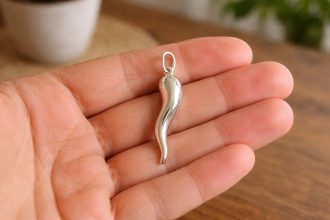You’re in the middle of talking, maybe telling a story or making a point, when it happens, your teeth snap down on your tongue. It stings, it interrupts you, and for a split second, you’re thrown out of the flow. Most of the time, it feels like nothing more than bad timing. But for centuries, biting your tongue has carried layers of meaning.
It’s often read as more than an accident: a sign with weight behind it. Sometimes it’s seen as a warning, sometimes as a mirror of what you’re holding back, and in many cultures, it’s wrapped up in old superstitions that refuse to fade.
The Spiritual Meaning of Biting Your Tongue
The tongue isn’t just a muscle. It’s the part of us that carries words, truth, and expression. It’s how we share what’s inside with the world outside. That’s why so many spiritual interpretations of tongue-biting focus on communication and energy. When you bite your tongue, it’s often seen as a spiritual signal to stop yourself before words spill out too quickly.
Slow Down Before You Speak
Sometimes, biting your tongue is a sign that you’re moving too fast, speaking without thinking, rushing into conversations, or letting scattered energy spill out in your words. Spiritually, it’s a moment that says: slow down and choose your words more carefully.
Suppressed Emotions
It’s not always about what you say. It can also be about what you’re not saying. Biting your tongue can mirror emotions you’ve been holding back: anger, grief, affection, truth. It’s your inner tension spilling out physically. In this sense, the bite is a push to stop swallowing those feelings and start finding safe ways to release them.
A Warning About Negative Speech
In Eastern traditions, the tongue is tied to karma. Words carry weight, shaping the energy you send into the world. Biting your tongue can be a reminder to avoid gossip, lies, or harmful talk. I like to think of it as a checkpoint before words leave your mouth: are they helpful, honest, necessary?
Biting Your Tongue in Sleep or While Eating
It doesn’t just happen when you’re awake and talking. Some of the most curious meanings show up when tongue-biting happens in other contexts.
In Your Sleep
Dreaming or sleeping is when your subconscious works through emotions and unspoken truths. Biting your tongue in sleep can be a sign that you’re avoiding something important in waking life. Maybe there’s a conversation you need to have, or a truth you’ve been pushing away. The bite is your own psyche drawing attention to it.
While Eating
Food represents nourishment… not just physical, but emotional and spiritual. Biting your tongue while eating can symbolize a mismatch between what you’re consuming and what you actually need. Are you rushing, not savoring the moment? Are you filling space instead of feeding yourself with what really matters? The bite interrupts you, forcing you to slow down and notice.
Superstitions About Biting Your Tongue
Everyday experiences like this often pick up layers of folklore. Depending on where you are, biting your tongue can mean very different things.

Someone Is Talking About You
One of the oldest superstitions says that biting your tongue means someone is talking about you behind your back. The sharper the bite, the sharper the words being said. It’s less about knowing exactly who, and more about being alert to the energy you’re surrounded by.
A Sign of Luck, Good or Bad
In some places, biting your tongue is treated as a lucky sign, especially if it happens during an important moment. In others, it’s the opposite, a warning of conflict or obstacles ahead. Either way, the superstition frames it as a glimpse into what’s coming, whether fortune or challenge.
A Reminder to Stay Grounded
Another take links tongue-biting to pride. If you’ve been bragging, talking yourself up, or forgetting humility, the bite acts as a reality check. It pulls you back down, reminding you to keep your words balanced with modesty.
When a Slip Speaks
On the surface, biting your tongue is just a small, painful interruption. But when you look at the layers of meaning, spiritual, emotional, and cultural, it turns into a reminder to notice your words, and just as importantly, the ones you swallow back.
It can be a sign to stop yourself before saying something you’ll regret. It can point to emotions you’ve been pushing down. Or it can tie you to centuries of folklore, where even the smallest stumbles were read as omens carrying weight.












